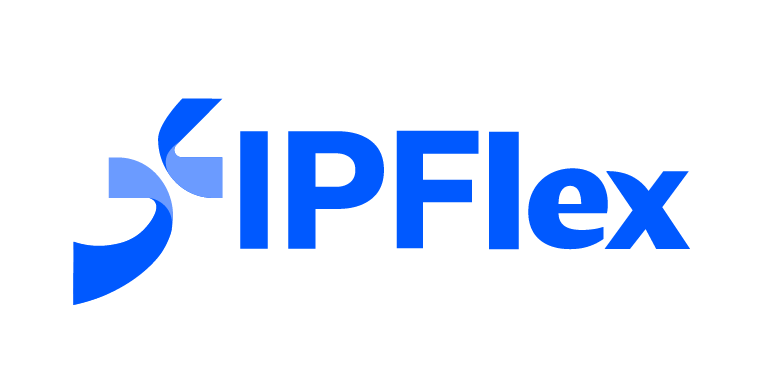IPFelx
Technical Tutorial
Complete Guide to Proxy IP Types: Datacenter vs Residential vs Mobile Proxies - How to Choose the Best Solution for Your Needs
This article provides an in-depth analysis of different proxy IP types (datacenter, residential, and mobile proxies), their characteristics, use cases, and selection strategies to help you make the optimal decision.
Complete Guide to Proxy IP Types: Datacenter vs Residential vs Mobile Proxies - How to Choose the Best Solution for Your Needs
Introduction
In today’s digital era, proxy IPs have become an indispensable tool in enterprise network operations. However, faced with a wide variety of proxy IP types in the market, many users often feel confused: datacenter proxies, residential proxies, or mobile proxies - which one should they choose? This article will provide an in-depth analysis of various proxy IP characteristics and use cases to help you make an informed decision.
I. Datacenter Proxies: The Cost-Effective Choice
1. Basic Characteristics
- IP Source: From datacenter servers
- Price: Relatively low
- Speed: Usually fast and stable
- Anonymity: Medium
2. Use Cases
- Large-scale data collection
- SEO monitoring
- Price monitoring
- Social media management
3. Pros and Cons Analysis
Advantages:
- High cost-effectiveness
- Fast connection speed
- Good stability
- Easy to manage
Disadvantages:
- Easily detected by target websites
- Relatively low anonymity
- May be blocked by certain websites
II. Residential Proxies: The Real User Choice
1. Basic Characteristics
- IP Source: From real home networks
- Price: Relatively high
- Speed: Depends on user’s network
- Anonymity: High
2. Use Cases
- Market research
- Ad verification
- Competitor analysis
- Social media marketing
3. Pros and Cons Analysis
Advantages:
- Extremely high anonymity
- Difficult to detect
- Few access restrictions
- Real user behavior simulation
Disadvantages:
- Higher cost
- Speed may be unstable
- Limited available IPs
III. Mobile Proxies: The Flexible Choice
1. Basic Characteristics
- IP Source: From mobile networks
- Price: Medium to high
- Speed: Depends on mobile network
- Anonymity: High
2. Use Cases
- Mobile app testing
- Location verification
- Mobile ad verification
- Mobile data collection
3. Pros and Cons Analysis
Advantages:
- Extremely high anonymity
- Location switching support
- Difficult to detect
- Suitable for mobile scenarios
Disadvantages:
- Higher cost
- Average network stability
- Limited available IPs
IV. How to Choose the Most Suitable Proxy Type?
1. Selection Based on Business Needs
- Data Collection: Prioritize datacenter proxies
- Market Research: Choose residential proxies
- Mobile Applications: Choose mobile proxies
- Ad Verification: Residential or mobile proxies
2. Cost-Benefit Analysis
| Proxy Type | Cost | Performance | Use Case |
|---|---|---|---|
| Datacenter | Low | High | Large-scale data collection |
| Residential | High | Medium | Market research |
| Mobile | Medium-High | Medium | Mobile applications |
3. Technical Metrics Comparison
class ProxyMetrics:
def __init__(self):
self.metrics = {
'datacenter': {
'speed': 9,
'stability': 9,
'anonymity': 6,
'cost': 8
},
'residential': {
'speed': 7,
'stability': 7,
'anonymity': 9,
'cost': 5
},
'mobile': {
'speed': 6,
'stability': 6,
'anonymity': 9,
'cost': 6
}
}
V. Usage Recommendations and Best Practices
1. Hybrid Usage Strategy
- Primary Proxy: Choose based on main business needs
- Backup Proxy: Prepare other proxy types as backup
- Rotation Strategy: Regularly rotate proxy IPs
2. Performance Optimization
- Connection pool management
- Automatic switching mechanism
- Failure retry strategy
- Load balancing
3. Security Considerations
- Authentication encryption
- Access control
- Logging
- Anomaly monitoring
VI. Frequently Asked Questions
Q: Why do my proxy IPs get blocked frequently? A: It might be because you’re using datacenter proxies. Consider trying residential proxies or increasing IP rotation frequency.
Q: How to evaluate proxy IP quality? A: Evaluate from multiple dimensions including speed, stability, anonymity, and geographic location.
Q: Why is there such a big price difference between proxy IPs? A: Mainly depends on IP source, quality, quantity, and other factors. Residential and mobile proxies have higher costs.
VII. Future Development Trends
Intelligent Management
- AI-driven proxy selection
- Automated performance optimization
- Intelligent IP rotation strategies
Security Enhancement
- More powerful encryption technology
- More comprehensive authentication mechanisms
- Stricter security standards
Service Integration
- One-stop proxy solutions
- Deep integration with other tools
- More comprehensive technical support
VIII. Summary
Choosing the right proxy type is crucial for your business success. Consider your specific needs, budget, and technical requirements when making the decision. Remember that there’s no one-size-fits-all solution - the best choice depends on your unique use case and objectives.
Recommended Reading
- Understanding Proxy IP Performance Metrics
- Best Practices for Proxy IP Management
- Proxy IP Security Guide
- Cost Optimization Strategies for Proxy IP
- Advanced Proxy IP Usage Techniques
Need help choosing the right proxy type for your business? Our expert team can provide personalized recommendations based on your specific needs. Contact us now for a free consultation!
